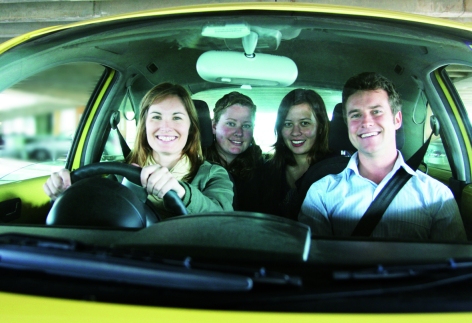Released in July, the Garnaut Draft Report highlighted the need for a carbon emission trading scheme as a means of slowing the effects of climate change.
The draft report states that Australians have become accustomed to low and stable energy prices, but this is now being challenged by rapidly rising capital costs, as well as large price increases for natural gas and black coal.
Ross Garnaut suggests that these cost effects will be much greater than the impact of the emissions trading scheme for some years.
At the same time, Australia is exceptionally well endowed with alternative energy options and the Hepburn community in Central Victoria is taking advantage of this.
Hepburn Shire Council has approved the development of a wind energy facility, comprising two wind turbines, giving a total capacity of four megawatts of power.
A year long wind monitoring study has found that the wind park will produce enough electricity for 2,300 homes, almost the number of households in the Shire’s two main townships – Daylesford and Hepburn Springs. It will also cut over 12,000 tonnes of carbon dioxide from the Shire’s greenhouse gas emissions.
Expected to be operational by 2010, the wind park will become Australia’s first community owned wind farm, with local people having the opportunity to buy shares in it.
Meanwhile, Manly Council in New South Wales has come up with a simple approach to reduce its greenhouse gas emissions, while at the same time assisting commuters to beat the soaring cost of petrol.
Council has launched a new online service to promote carpooling for its residents, staff and local businesses.
Motor vehicles are a major contributor to air pollution. In 2005, the National Greenhouse Gas Inventory stated that the transport sector produced 14 per cent of Australia’s greenhouse gas emissions.
Every litre of petrol saved reduces 2.4 kilograms of carbon dioxide emissions. The more people sharing
a car the more petrol saved and the less emissions.
The carpooling website puts motorists in touch with carpooling schemes that service the Manly area, most charging no registration fee to participants. The website also provides motorists with links to information on their car’s environmental impact, sustainable transport tips and information on fuel costs. In addition, it provides tips for planning and managing carpool pickup locations and times, pooling petrol, parking, road tolls and vehicle maintenance costs, and even advice on carpool etiquette.
“Carpooling benefits the community by reducing greenhouse gas emissions, improving local air quality, reducing commuter stress, motoring costs and traffic congestion,” said Manly Mayor, Dr Peter Macdonald. “It also saves time by letting vehicles use the T3 Lane when three or more people share the car. In addition, carpooling enhances community spirit, with increased social interaction between people.”
Dr Macdonald said carpooling also benefits companies.
“Those that arrange carpooling maximise use of employee parking, encourage sociability between employees, and improve company image as an environmentally friendly business,” he said.
Fremantle City Council is also doing its bit to save the environment.
With two local metropolitan supermarkets having gone plastic bag free from 4 August, Fremantle Mayor, Peter Tagliaferri, is now calling on other retailers to match their efforts.
Australians use more than 10 million plastic bags a day, throwing away some 7,150 recyclable plastic bags a minute, and 429,000 being dumped in landfill each hour.
Four years ago, the City of Fremantle made a commitment to becoming a plastic bag free city, asking shoppers to reduce their use of plastic bags while urging retailers to offer alternatives.
“You only need to see the amount of people now carrying the green bag alternatives, which highlights the positive changes the community has embraced in that time,” he said.
“Supplying plastic bags is a business expense with no financial return. But small businesses can sell their own alternatives at a profit and advertise themselves on the bags at the same time. When you look at it from that logic, it makes no sense for retailers to keep using plastic bags.”
Back on the east coast, the City of Melbourne’s Director Design and Urban Environment, Professor Rob Adams recently won the Prime Minister’s Environmentalist of the Year Award at the prestigious Banksia Environmental Foundation Awards. Council’s Parks and Gardens team also took out the national Local Government Award for its ‘Managing Drought in the City of Parks’ project.
Professor Adams said that Local Government can not only meet the challenge, but lead by example, managing systematic and incremental change and major innovation in sustainability.
“Melbourne shares with many cities the challenge of addressing climate change, while accommodating a growing population within an accessible, liveable and sustainable city,” he said.
In meeting the challenge of Stage 3 water restrictions, City of Melbourne’s Managing Drought in the City of Parks project has resulted in the total use of potable water in the City’s parks, gardens and reserves being reduced by 63 per cent compared with the annual consumption just two years earlier.

















